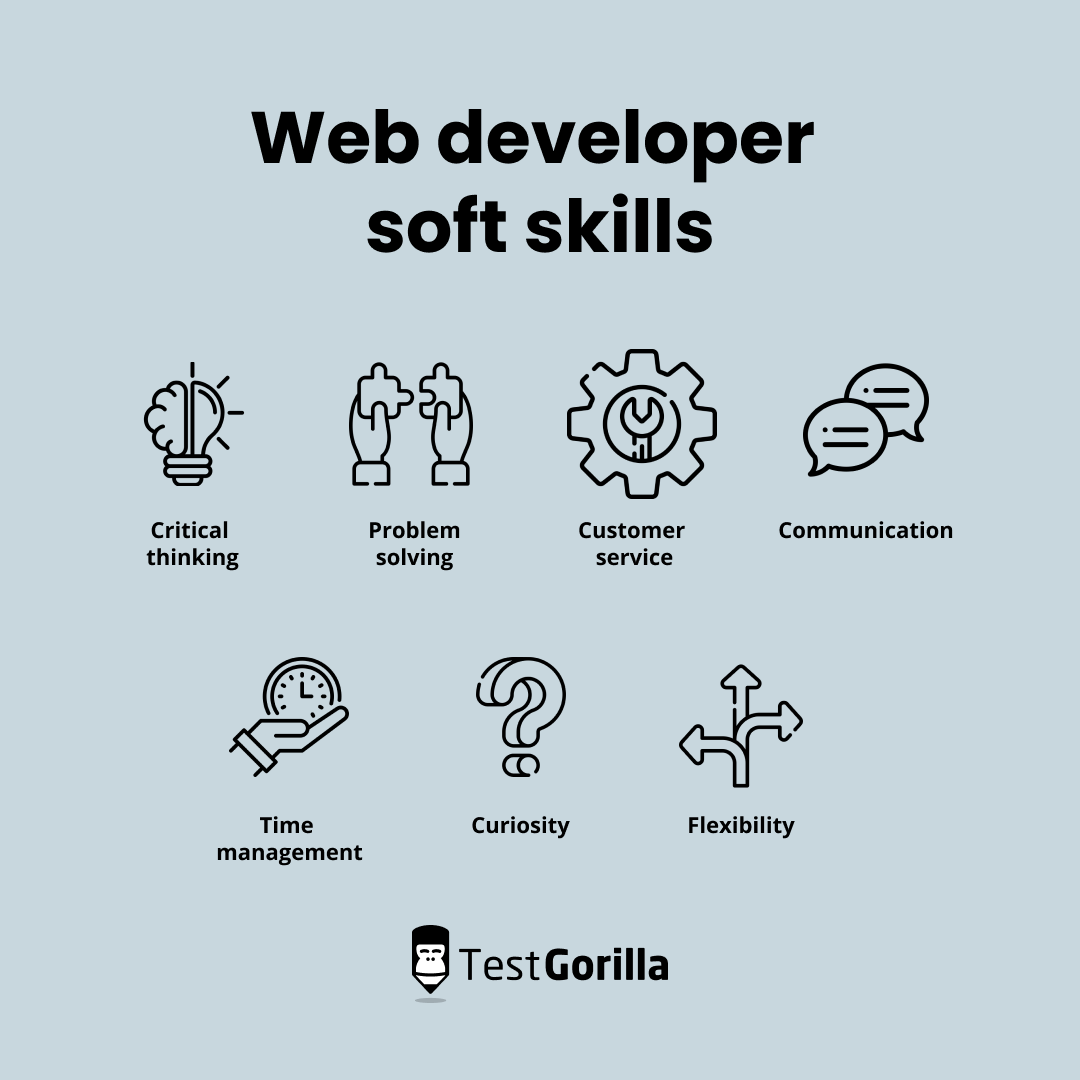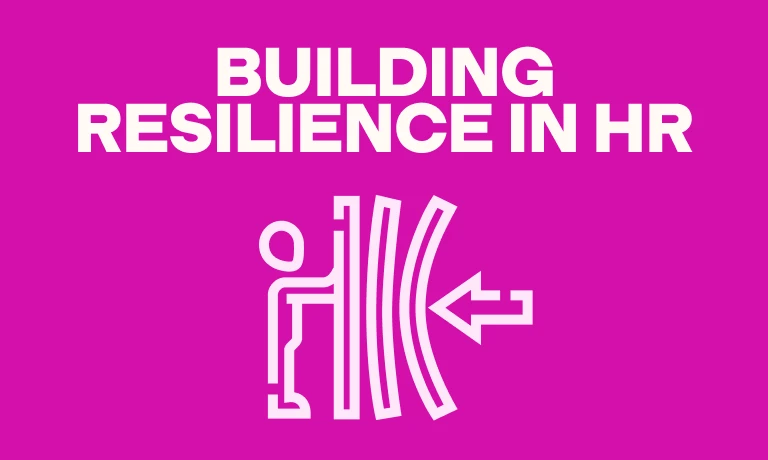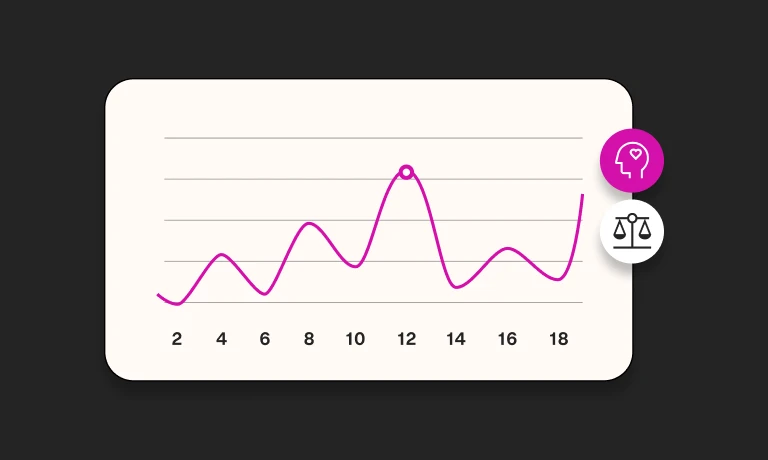Websites are crucial for attracting and converting new leads and retaining existing customers.
Having a strong online presence and providing a good user experience for visitors boost organizations’ success. Whether you need to build a website for your own company or your firm creates sites for your clients, hiring talented web software developers with skills such as proficiency in CSS and HTML5 is essential.
Web developers are in high demand, and companies are doing their best to reduce turnover rates among their development teams. This makes it harder to find a high-quality professional available for hire.
Still, you shouldn’t recruit just any web developer if you value your website and business. Your web developer will play a significant part in creating and maintaining your organization’s or clients’ digital presence.
Therefore, you need to find someone with excellent technical skills and industry know-how who understands your values and suits your culture.
So, building a fast and efficient web developer recruitment process is a must if you want to attract the best talent.
Before you start your hiring process, you need to clarify what kind of web developer you need. Ask yourself questions like the following:
Do you need a web developer or a dedicated web development team?
How big are your projects?
Do you need someone to work on a single project, or are you looking to hire a developer for long-term work?
Do you need a front-end or back-end developer?
Do you already have a web designer?
This guide on how to hire a web developer will help you answer these questions, find out what skills are important for a web developer, and learn how to evaluate them objectively.
We’ll also cover details about a web developer’s average salary and where you can source qualified web developers. We’ve included a web developer job description template and recommended questions you can ask in the interview stage.
Table of contents
What is a web developer?
Web developers create websites. They write the code that programs websites and web applications to operate as intended, making their role critical for the success of many businesses.
If you’re still not convinced that websites are among the most important business assets, let’s look at the numbers:
In 2022, there was a 21.7% increase in online retail sales in the US compared with 2021. The total number of online retail sales in 2022 reached $1.07tn. E-commerce has grown by 275% in the past decade. Revenue in the e-commerce market is expected to reach $4.11tn in 2023. What’s more, almost 60% of American consumers prefer to shop online.
Many businesses have already realized that the future of business is online. The overall employment of web developers and digital designers is expected to grow by 23% from 2021 to 2031, which is much faster than the average for most occupations.
In light of all this, web developers are vital in helping businesses unlock their online growth and reach more customers.
But to achieve this, they need to be proficient in widely used web programming languages, such as JavaScript, HTML, and CSS. This enables them to perform the following key tasks:
Write cohesive, easy-to-read, and functional code
Incorporate data from back-end databases and servers
Implement visual designs and layouts
Integrate graphics and content
Optimize a website’s interface, general performance, and capacity
Maintain and test a website’s performance across any type of device
A good web developer will ensure that the site’s navigation, UI, and graphics provide a positive user experience (UX). After all, the end goal is to satisfy customers and aid them in learning more about the company and the goods or services it offers.
A web developer’s tasks can vary widely depending on the type of organization they’re working for, the size and type of the web-based projects they’re developing, whether they’re working alone or in a team, and the specific kind of web developer they are.
Let’s dive into more detail about the different responsibilities of web developers.
Web developer vs. web designer
Many people confuse the role of a web designer with that of a web developer. Though they often work together to build and maintain websites or web applications, their responsibilities are different.
Here are the three main differences between a web developer and a web designer:
Focus: Web designers focus on the visual aspects of the website, including its UX, color scheme, graphic design, and assets such as images and icons. On the other hand, web developers focus more on the site’s functionality. They convert the web designer’s design into code to make an actual functional website.
Tools: Web designers work with design and layout tools, such as Adobe Dreamweaver, Adobe Photoshop, and InVision Studio. In contrast, web developers use programming languages such as JavaScript and software tools and extensions like Sass, ChromeDevTools, and AngularJS.
Skill sets: Generally, web designers need to be highly creative and require stronger skills in graphics and user interface (UI) design. Web developers specialize in building different parts of the website (depending on whether they’re front-end, back-end, or full-stack developers) and writing code in a range of programming languages.
Sometimes the job roles of a web developer and web designer overlap. For example, some web designers know how to use languages like HTML and CSS to implement graphics into the website. However, designing and building a complex website from scratch usually requires separate people for these two roles.
Front-end vs. back-end vs. full-stack developers
Before you delve into the process of hiring your new web developer, it’s critical to learn about the most significant specialties in this field. This way, you can easily identify what kind of web developer you need for your company.
Front-end developers
Front-end developers work on the part of the website that your visitors will see in their browsers.
There can be some overlap between a front-end developer’s role and that of a web designer. In fact, some companies hire web designers who can also implement designs in the site’s UI. However, front-end developers do not necessarily create the designs themselves.
Front-end developers develop the layout and structure of every page. This involves integrating graphics and other visual content. Their responsibility is to ensure there is a balance between the website’s design aesthetics and its functionality.
Back-end developers
Back-end developers focus on how your site works behind the scenes. They deal with the aspects of the website that enable the user-facing part of the site to exist. This includes duties like managing databases, programming server-side functionalities, implementing security measures, and optimizing site performance.
Full-stack developers
Full-stack developers are the jacks-of-all-trades. This means that they handle both front- and back-end development. These developers work on both the UI and the infrastructure and logic that powers it.
This often means that a full-stack developer can build an entire website on their own. Keep in mind, however, that their knowledge of any one specific area may not be as deep as that of developers who specialize in that particular domain.
Although the average salary of a full-stack developer is typically higher than that of a front- or back-end developer, they require less co-ordination, which can speed up the development process and be more cost-efficient. Full-stack developers are often hired by smaller companies that don’t have a large budget for website development.
Web developer hard skills
There are several essential hard skills to look for in a web developer.
Computer literacy
Web developers do all of their work on computers and other technological devices, so computer literacy is a clear must-have.
Someone with the knowledge and ability needed to use computers and related technology effectively can:
Type quickly and accurately
Create and manage spreadsheets
Use databases
Handle files and folders
Perform online research
Navigate the internet
Read and write emails
Programming skills
A web developer must be proficient in various programming languages and other tools. Depending on the type of developer you’re looking for, you’ll need them to have technical skills in different areas.
A front-end developer must be able to work with languages and frameworks like the following:
HTML
CSS
JavaScript
Angular
If you’re hiring a back-end developer, look for candidates with excellent skills in programming tools and languages such as:
JavaScript
SQL
Full-stack developers should have strong knowledge of both types of tools listed above.
Content management systems skills
Creating and modifying content is a vital part of a web developer’s role. If you expect your developer to manage your digital content and how it appears on your website, you need to find an applicant who can work with content management systems (CMSs).
CMS platforms are used to search for and retrieve data for easy access and to create and manage content.
Here are some examples of the most widely used CMSs:
SEO knowledge
Search engine optimization (SEO) will help you improve your website’s ranking in search engines, increasing the quality and quantity of traffic to the site.
SEO is a huge part of building a successful website, so it’s important to find a web developer who has solid technical SEO knowledge and knows the best practices for SEO when building your website.
A site with proper search engine optimization will:
Attract more visitors
Increase organic search traffic
Increase user satisfaction
Improve brand awareness
Provide cost-effective marketing
Research skills
Technology is developing fast. To stay in tune with the latest trends and developments in web development, web developers need to be good at research. Strong research skills can also help them find innovative solutions to coding problems they face.
UX/UI design
If you’re hiring a front-end or full-stack developer, you should be looking for someone with UX and UI design knowledge. One of the primary responsibilities of these roles is creating the website’s interface.
Web developers with UX/UI design skills can:
Understand how users interact with the site
Create and implement designs that are intuitive and easy to use
Improve the visual appeal of your website
The best insights on HR and recruitment, delivered to your inbox.
Biweekly updates. No spam. Unsubscribe any time.
Web developer soft skills
Successful employees have more than just technical proficiency. Soft skills are abilities that relate to how you work and interact with people. It’s not what you do, it’s how you do it, as American meditation teacher Cheri Huber says.
When hiring a web developer, look for candidates who possess the following soft skills.
Critical thinking
Critical thinking enables people to closely inspect information and use it to make a logical decision. It’s important for web developers to be able to think analytically and use their critical-thinking skills to find creative and effective solutions when coding challenges arise.
Web developers with strong critical thinking can:
Methodically ask questions to reach a conclusion
Rely on facts rather than on assumptions or intuition
Evaluate various approaches
Problem solving
One of web developers’ primary tasks is to identify problems in their code and develop effective solutions for them. The ability to solve problems is crucial in this field. Developers with excellent problem-solving skills can successfully:
Identify and analyze problems
Collaborate with colleagues to generate and execute potential solutions
Implement the best course of action to address issues
Communication
Web development is a collaborative process, so developers need strong communication abilities. Effective communication provides the following benefits for businesses:
Reduces costs
Increases productivity
Minimizes errors
Saves time
Web developers who can communicate efficiently can:
Understand their clients’ needs
Help their clients understand the different solutions that exist
Collaborate well with their teammates
Work smoothly with web designers and other developers
Time management
Websites and web applications have to be launched on time. Every day visitors cannot access them is a day of lost profit potential. Therefore, web developers who can meet their deadlines are cost-effective for your organization.
Web developers often work remotely or follow a flexible work model, which can make it easier to lose track of time and fall behind schedule. That’s why it’s important to hire web developers who can:
Prioritize tasks
Meet deadlines
Delegate tasks effectively
Plan their time and stick to the plan
Curiosity
Curiosity is the secret ingredient that makes a web developer great. Curiosity-driven developers stay relevant in their field because they are passionate about constantly learning and exploring innovations in technology. They don’t overlook new learning opportunities and keep themselves motivated.
Being curious also enables them to learn more about fields other than technology. Extensive general knowledge and natural interests in various disciplines make a person more capable of creating a resourceful and useful product.
Flexibility
In a constantly changing industry such as web development, employees face complex challenges and unpredictable problems every day. Keeping an open mind and adapting to the latest developments helps them solve issues efficiently and build modern and functional products for your clients.
Another reason flexibility is a must-have skill for web developers is that clients often change their minds throughout the development process. Web developers must be ready to turn on a dime on some occasions, so remaining flexible and open-minded is essential.
How to test web developer skills
Now that you’ve determined which skills are important for web developers, you can move on to the next step by assessing their skills.
But how do you identify the right person for your company?
Here are our recommendations:
Use pre-employment skills testing to gain invaluable data-driven insights into your applicants’ hard and soft skills. One survey found that a staggering 72% of candidates admit they misrepresented themselves in their resumes. Instead of sifting through hundreds of resumes that may contain misleading information, implement standardized and science-backed pre-employment skills tests in your hiring process.
Try Agile recruiting. Agile recruiting is a recruitment method frequently used by tech recruiters for talent such as software and web engineers and developers. This strategy emphasizes and facilitates team collaboration.
Conduct interviews to learn more about your candidates’ motivations, personalities, and desired lifestyles. You can use the results from the pre-employment tests you administered to create personalized questions for every candidate you interview.
To accurately evaluate your candidates’ skills with pre-employment tests and decide who to interview, you need to build a skills assessment. A skills assessment consists of up to five tests relevant to the job role.
Here are our top recommendations for skills tests you can use to build your web developer assessment:
Computer Literacy (PC) test: This test evaluates basic computer knowledge, including the ability to use computers and related technology in a work environment.
JavaScript tests: These pre-employment tests assess a candidate’s JavaScript programming skills. You can choose from tests for entry-level algorithms, debugging, and more.
HTML5 and CSS tests: The HTML5 and the CSS tests are crucial for front-end and full-stack web developers because these are the most commonly used front-end programming languages. Use these tests to identify candidates who have experience creating websites and web applications with HTML5 and CSS.
Technical SEO test: This test will help you hire candidates whose understanding of SEO can improve your website’s ranking in search engines.
Angular test: This test is for assessing front-end- and full-stack developers’ experience with using the Angular framework to create websites and web applications more efficiently.
WordPress Developer test: With this test, you can evaluate candidates’ knowledge of the WordPress platform, including WordPress administration, customization, security, and database management. Given that WordPress is used by more than 40% of websites, it’s a good idea to test developers’ ability to create and maintain sites using this CMS.
Python tests: These tests will help you identify back-end and full-stack developers with essential Python coding skills, such as the ability to work with arrays and use Python libraries like Matplotlib.
PHP tests: These tests evaluate candidates’ ability to use the scripting language PHP effectively. There are tests for object-oriented programming and entry- and intermediate-level algorithms in PHP.
UX/UI Design test: With this test, you can see who has the right UX/UI design skills to build a website that provides a great experience for its users.
Time Management test: Find candidates who can manage their time well in a professional setting with this test.
Problem Solving test: This test will help you find candidates who can properly evaluate and respond to complex situations and find solutions to pressing problems.
Communication test: Hire excellent communicators with this pre-employment skills test.
Critical Thinking test: This test will help you identify candidates who can actively conceptualize, analyze, apply, and evaluate information to make solid judgments or find innovative solutions.
Where to find web developers
Before you figure out the “where,” you should ask yourself if you want to hire an in-house or a freelance web developer.
In-house web developers are the best choice for your company if you:
Need constant and ongoing website maintenance, updates, and improvements.
Want to build a more complex product and need an all-rounder who has a multitude of programming skills
Plan on making a lot of products
Freelance web developers can be better for your business if you:
Have a one-off job
Don’t need a lot of up-keep on your website and know it will only need minor updates
Want a web developer who specializes strictly in one area
Where to hire an in-house web developer
Here are a few online platforms you can use to find in-house talent for your business:
LinkedIn: This is the platform on which most virtual networking is happening these days. Most tech professionals use it to stay relevant, so you can pick from a large and diverse talent pool.
Outsourcely: This is a great platform for hiring remote workers directly with zero commission fees. It focuses on people who are looking for long-term work.
Hired: Hired uses an algorithm to match your requirements with candidates’ skills and experience. Candidates’ profiles display their skill sets, backgrounds, job histories, job interests, and resumes.
Where to hire a freelance web developer
If you’d prefer to hire a freelancer for your projects, use these platforms as a starting point:
SimplyHired: You can create unlimited free job postings on this platform. SimplyHired posts your job on more than 100 recruitment sites.
Toptal: Toptal is an exclusive platform that gives you access to only the top 3% of web developers they have screened beforehand. It gives you a two-week trial period, meaning if the web developer you hired doesn’t meet your needs, you don’t have to pay anything extra to release them from their duties.
Codeable: On this site, you can find freelance web developers who specialize in WordPress.
Stack Overflow: This website is used as a resource for all kinds of developers. You can use it to find a large pool of candidates who have expertise in various programming languages. If you’re a paid member, you can review the users’ profiles and find some of the best web developers in the field.
Web developer job description template
Below is a web developer job description template you can use as a guide as you draft a description for your open role.
[YOUR COMPANY’S NAME] is looking for a skilled web developer to develop compelling websites for our clients.
As our web developer, you will be responsible for building, adjusting, and maintaining our clients’ websites.
Web developer job responsibilities
Building and maintaining websites and web applications
Translating wireframe designs into functional code
Making functional and responsive web products
Troubleshooting and debugging
Integrating multimedia content into websites
Testing and reviewing code
Collaborating with designers, developers, and stakeholders to resolve conflicts, clarify needs, find effective solutions, and develop content criteria
Determining user needs by analyzing requirements and customer feedback
Ensuring that the web content is accessible on any type of browser and device
Keeping up with the latest developments and improvements in technology
Web developer job requirements
Bachelor’s degree in web development or any related field
Two years of experience in planning and developing websites or web applications (or equivalent)
Solid knowledge of web applications, programming languages, and web development tools
Proficiency in JavaScript, CSS, and HTML
Experience with content management systems
Knowledge of technical terminology
Ability to thrive in a dynamic work environment
Excellent problem-solving skills
A high degree of analytical thinking
Enjoys collaborating with others
Want a more detailed guide? Check out our in-depth web developer job description template.
What is a web developer’s salary?
As of 2023, the average salary for web developers is $82,364. However, it ranges from $50,957 to $133,129.
To determine what would be a competitive salary for a web developer for your organization, consider factors such as:
The developer’s experience
Any additional in-demand skills you’re looking for
The cost of living at the developer’s location
Whether you’re hiring an in-house or a freelance web developer
Web developer interview questions
Here are some questions we recommend asking your web developer candidates in an interview:
How do you organize your code to keep it easy to read?
Provide an example of a website that you don’t like. What would you improve?
What was your favorite web development project?
How do you handle being unfairly blamed for an error?
What excites you about the future of web development?
What is your favorite programming language, and why do you prefer working with it?
Have you worked with a client that frequently changes their requirements for their product? How did you handle that?
If you need more inspiration, check out our 57 web developer interview questions or 45 CSS interview questions that will help you hire an expert.
Make an informed decision when hiring a web developer
Recruiting a web developer can make or break your company. Avoid making a bad hire, and identify the right candidate for your business by implementing pre-employment skills testing in your hiring process.
Finding a web developer who understands your needs and has the skills to turn your vision into a digital reality is something worth investing in.
Receive a free demo with our experts, or sign up right away for TestGorilla’s free plan and hire the best web developer today.
You've scrolled this far
Why not try TestGorilla for free, and see what happens when you put skills first.















